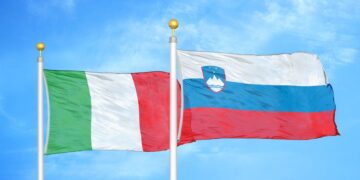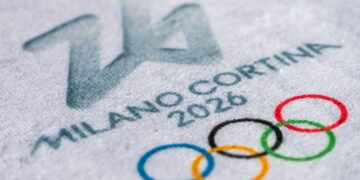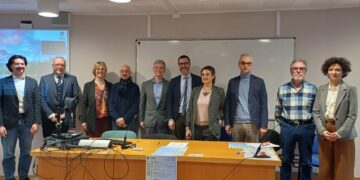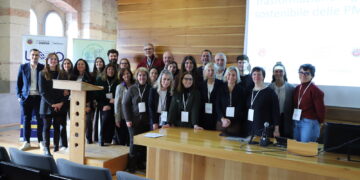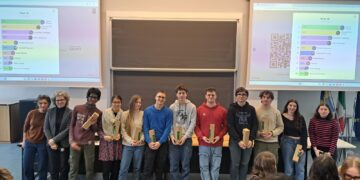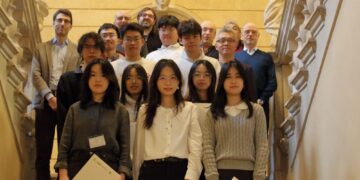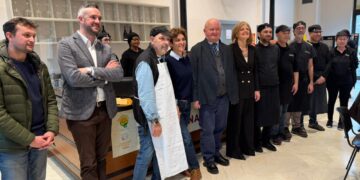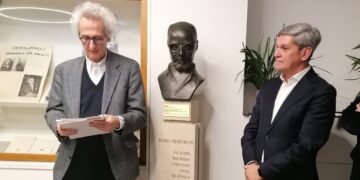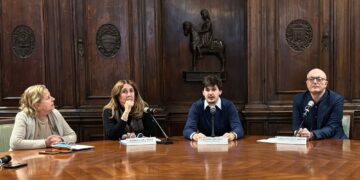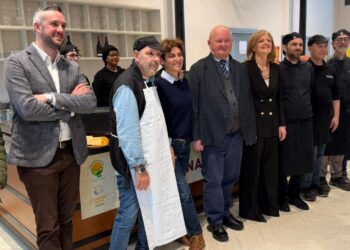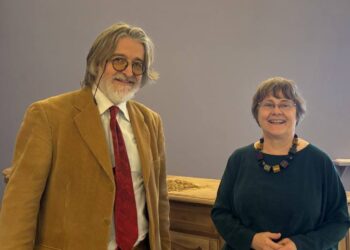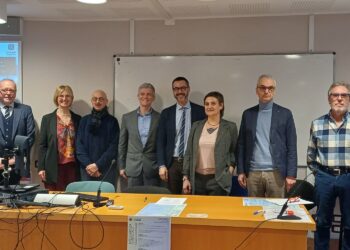When the coronavirus emergency hit us, most of the second semester courses had started just two weeks earlier. Since then, all teaching activities have been held online via distance learning. Annalisa Ciampi, Professor of international law at the Department of Law, tells us about her experience.
Professor Ciampi, what has it been like teaching here in the last few months?
I still had more than 100 hours of lectures to give, so I opted for the web-conference mode via Zoom, which allows not only live streaming, but also a strong interaction with students. Everything — or almost everything — can be done online: from Socratic questioning to robust seminar discussions, when the number of students is not too large. Online learning also allows us to experiment with new teaching methods. Our students responded by showing up, remaining fully engaged, and supporting one another, even though many faced serious disruptions in their daily lives and work.: in particular our Erasmus students, some of whom were initially stuck in Verona, while others had managed to return home in a hurry, in some cases even leaving their laptops and books behind, assuming that the emergency would soon be over, and that they would be able to get back to Verona after a few weeks. However, the good thing was that the Erasmus students were able to continue attending their lectures online from Germany, Spain, France, Hungary, etc.
Does the coronavirus crisis affect study plans too?
All our degree programmes are and will be affected by the coronavirus outbreak in terms of both teaching methods and content. I believe that the emergency in all its dimensions (health-related, social, and economic), and the measures taken in the fight against Covid-19 at all levels (international, national, local, individual) are bound to have a major impact in all fields of science and beyond. This is certainly true for all areas of law, and especially for my field, which is international law.
Would you give us some examples of these changes?
Together with my students of the course Law of International Organisations, we focused on the topic of cooperation between states in the field of health care and the economic recovery amid a global crisis, such as the one triggered by the Covid-19 outbreak. When cooperation at the international level is required, action by organisations is paramount.
We noted the crucial role, but also the limits, of the World Health Organisation. On 30 January 2020, the WHO declared Covid-19 a Public Health Emergency of International Concern, then reclassified it as a high-risk threat, while finally, on 11 March 2020, it declared it a Pandemic. The WHO has established a fund for health response: support for medical equipment and staff training, safety guidelines and information on the evolution of the outbreak and the development of research for treatment and vaccines. Yet, at least at the beginning, WHO showed full appreciation of the measures taken by China to control the epidemic, which prevented other states from critically examining these measures.
On the other hand, the United Nations Security Council has failed so far to take a position, notwithstanding the existence of a serious situation that could well be regarded as a threat to peace, as it had happened in the past for Ebola. In the Security Council, not only any resolution, but also any formal discussion of the pandemic is made impossible by the clash between China and the United States. Responses taken by the UN have been extremely “soft”, such as the Secretary-General’s call for a global ceasefire on 23 March 2020, and the General Assembly resolution “Global solidarity to fight the coronavirus disease 2019”, adopted unanimously on 3 April 2020, according to which the UN will cooperate closely with the WHO, particularly on the aspects relating to the social impact of the crisis and the economic response.
Since the EU does not have legislative power for health policy it cannot prescribe binding rules, which limits its tools in combating the virus.. However, health is only one of the dimensions of the crisis, which is touching everybody and everything: from health and food security to freedom of movement and all aspects of social life: education and inequalities, including gender-based inequalities, etc. The economic instruments put in place to date by the European Commission and the European Central Bank are those which have had the greatest visibility, so far. They should turn into reality the principle of solidarity between the EU Member States.
Another example comes from my course on International Arbitration, where we focused on how the pandemic has ‘paralysed’ all ongoing proceedings worldwide, as we traditionally know them, not only nationally but also at the international level. There is no arbitral institution which did not adopt within weeks — or even days — new rules and procedures for the online and remote conduct of proceedings, in all its stages, including the hearing of witnesses and expert witnesses.
And what about human rights in this time of restrictions?
Human rights are obviously at the heart of the current crisis, although not enough has been said about them in the public debate. There are fundamental ‘non-derogable’ human rights that the state has an obligation, not only not to restrict, but also to uphold, such as the right to life and the right to health. It is in this context that it is possible to identify the basis for a true international obligation of States to cooperate in order to contain the spread of contagious diseases, as well as on therapies and the search for a vaccine. In order to guarantee these rights, the so-called ‘derogable’ rights (freedom of movement, freedom of religion, freedom of association, etc.) may be subject to limitations such as those imposed by lockdown measures.
Very little has been said about the relationship between the coronavirus emergency and human rights, but there are issues of compliance with constitutional principles, and also with international obligations, in particular the European Convention on Human Rights and Fundamental Freedoms. Many states, such as Albania, Armenia, Estonia, Georgia, Romania, San Marino and Serbia, have formally notified Strasbourg that they would make use of the possibility of derogation permitted by the European Convention on Human Rights in the event of a national emergency. Yet Italy has not done so, and I believe it was right not to do so, because for the majority of rights, when it comes to the protection of public health, necessary and proportionate restrictions are allowed. But, I wonder, was it a conscious decision?
How has Covid-19 changed, and will change, your approach to work?
We just started discussing it, with my colleagues from the Law Department, and from the Master’s degree programme in Economics where I teach International Economic Law. We all agree that our work has changed, and the workload has increased too, because we were not expecting anything like that. We all had to rearrange our teaching materials and adjust our way of teaching and interacting with students. But I also believe that this is the essence of our work: always reinventing ourselves to give our students the best of our expertise and knowledge. And we were supported by the University’s governance, in particular the Chairs of the Teaching Committees played a fundamental role throughout the emergency, together with the IT staff and the Teaching and Student Services Units.
The coronavirus emergency is an epochal event, which might have wiped out some of our traditional teaching methods but which will also leave us with new skills, — such a valuable asset for our University in the years to come.

